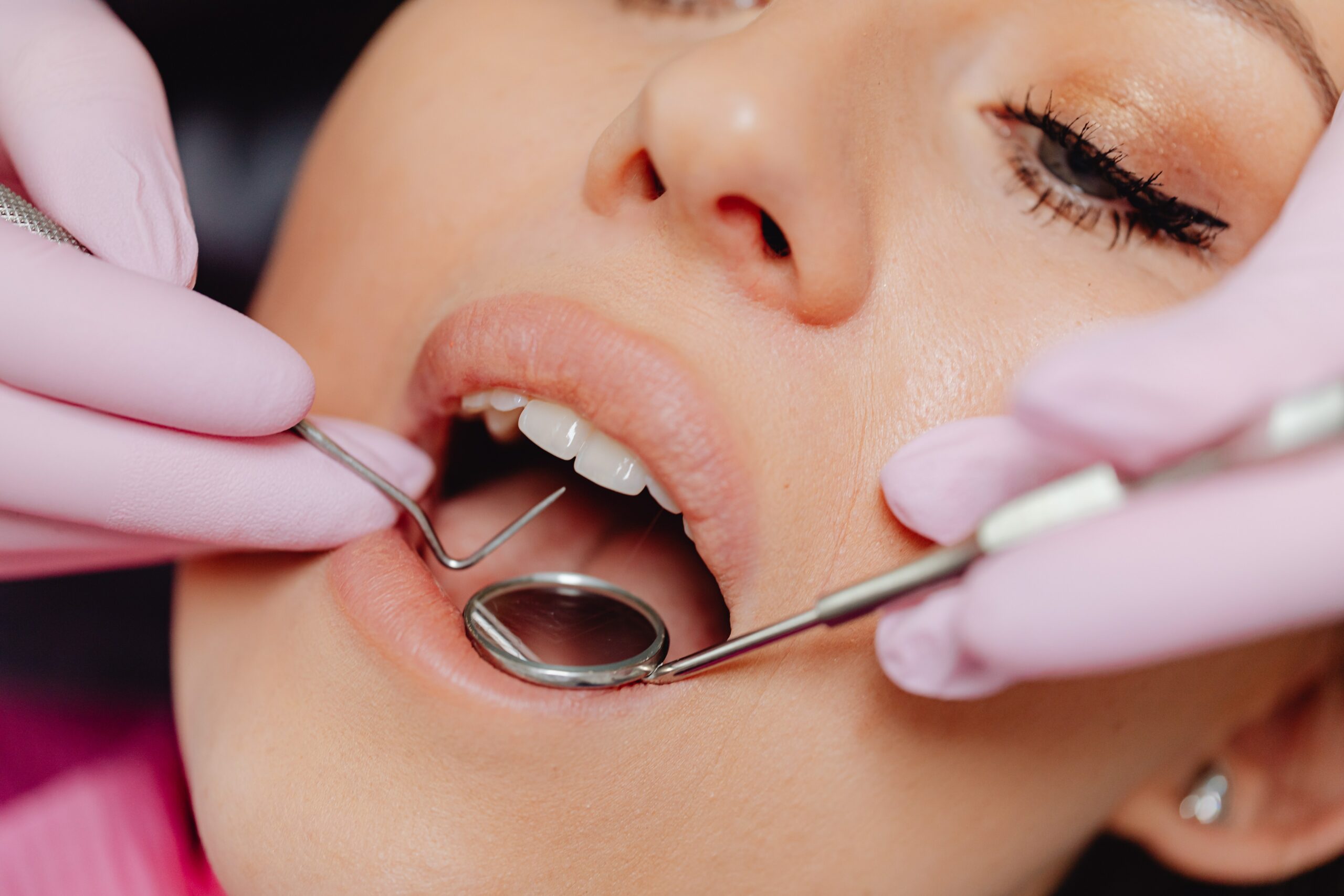You brush, floss, and rinse your teeth every day. Smart move! But you should also regularly visit your dentist to keep your smile healthy and strong. Maintaining healthy teeth and gums for life is a team effort between you and your dental care professional. You both play an active role. But are you doing everything you can to keep your teeth and gums healthy? Here are five of the most common dental care mistakes too many people make.
Mistake #1: Using a toothbrush with hard bristles or brushing too hard
A toothbrush is one of the most important items in your bathroom. If you follow guidelines, you use it twice per day to remove plaque and trapped food particles. As helpful as that toothbrush is, it also has the potential to cause damage. If you use a hard toothbrush or brush too aggressively, you can develop gum recession, bleeding gums, and irritation.
A soft-bristled toothbrush is the best choice if you have sensitive teeth and gums. It’s also the safest option if you have braces because it won’t cause damage to their brackets and wires as easily as a harder brush could. Most dentists recommend a soft-bristled brush over one with medium bristles since the soft one does an adequate job with less risk of damage.
Make sure your toothbrush is angled so that the bristles can reach all areas of your mouth–the outer edge and back surfaces, as well as the front. Be sure to use a toothpaste that contains fluoride to help remineralize your teeth and prevent cavities.
Mistake #2: Forgetting to floss or using the wrong floss
Flossing is one of the most important steps you can take to keep your mouth healthy. It’s a simple habit, but people often do it incorrectly or don’t do it at all. About 60% of Americans don’t floss daily and that can be a problem if you have gum disease or oral health issues. The proper technique for flossing is easy to learn, but many people still struggle with this basic task. There are videos online that demonstrate how to floss properly. It’s also important to use the right floss and not skip teeth.
Here are some tips for flossing correctly:
- Use waxed dental floss with 43-50 strands per inch (SPI). This will allow you to slide the floss easily between your teeth without it breaking into pieces.
- Don’t skip over areas where food gets stuck between your teeth; floss between each tooth.
- Floss once every day, so there are no surprises when you visit your dentist. (which should happen every six months).
- If it makes flossing a more pleasant experience, choose a flavored floss.
Mistake #3: Neglecting your tongue
Don’t be guilty of not giving your tongue the attention it needs. This small appendage is an important player in maintaining good oral health. Your tongue is home to millions of bacteria, which can lead to bad breath if left unchecked. After brushing, use the head of your toothbrush or a tongue scraper to clean your tongue.
Start at the back of your tongue and use gentle pressure with the brush as you move forward, brushing in a back-and-forth manner. If it makes the experience better, add a small amount of toothpaste to the toothbrush when you clean your tongue.
Mistake #4: Not brushing long enough
Most people don’t brush long enough. Dentists say to brush your teeth for at least two minutes, using a small circular motion. Don’t rush through it. A quick brush won’t remove plaque and debris effectively. Also, ensure you brush each part of your mouth: the outsides and insides of your teeth and gums; under the tongue; along the roof of your mouth (where those pesky scraps of food stick); and even behind your tongue where food can collect. If you’re having trouble brushing or flossing properly on your own, talk to your dentist about how to upgrade your technique.
Mistake #5: Not seeing your dentist regularly.
Visit your dentist every six months for routine checkups. During these visits, your dentist or hygienist will check for cavities, gum disease, and other problems in your mouth. If you’re having trouble scheduling regular appointments, set up a reminder on your phone or calendar app to let you know it’s time to book an appointment. Don’t assume you can do a thorough job at home. A deep cleaning will remove hard tartar deposits that are hard to remove with a toothbrush.
Conclusion
Hopefully, these dental care mistakes will help you avoid some of the most common and costly tooth and gum problems. If you can avoid these mistakes, your smile will be healthier and brighter and you’ll spend less money, time, and energy on dental procedures due to tooth neglect. It’s worth the extra effort!



